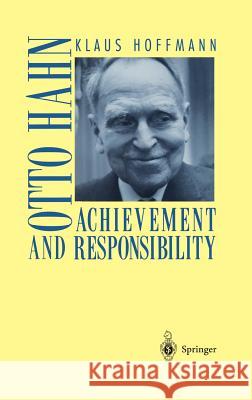Otto Hahn: Achievement and Responsibility » książka
Otto Hahn: Achievement and Responsibility
ISBN-13: 9780387950570 / Angielski / Twarda / 2001 / 276 str.
Research in the biological as well as the physical sciences is again raising questions about the responsible uses of science, much as half a century ago, when the detonation of nuclear weapons led many scientists to consider the uses to which their discoveries were put. Otto Hahn (1879-1968) was awarded the 1944 Nobel Prize for Chemistry for his work on atomic fission: His experiments with Lise Meitner and Fritz Strassmann in Berlin in the 1930s and 1940s led to the discovery that uranium nuclei can undergo spontaneous fission, releasing enormous energies. The results, conveyed to England and the US by scientific refugees from Nazi Germany, instigated the Manhattan Project and the development of the Atomic Bomb. Reviled by many after the war as one of the people responsible for the carnage at Hiroshima and Nagasaki, Hahn had already begun to reflect on the political and social responsibility of scientists for their fundamental discoveries and the subsequent applications of the knowledge they create. Already during the war, Hahn had protested Nazi restrictions on universities and researchers, and after the War he became actively involved in efforts to restrict the spread of nuclear weapons. In this volume Klaus Hoffmann discusses Hahn's contributions to science and his reflections on scientific and social responsibility. He concludes that Hahn's ideas can still serve as a foundation for responsible and moral actions by scientists.











